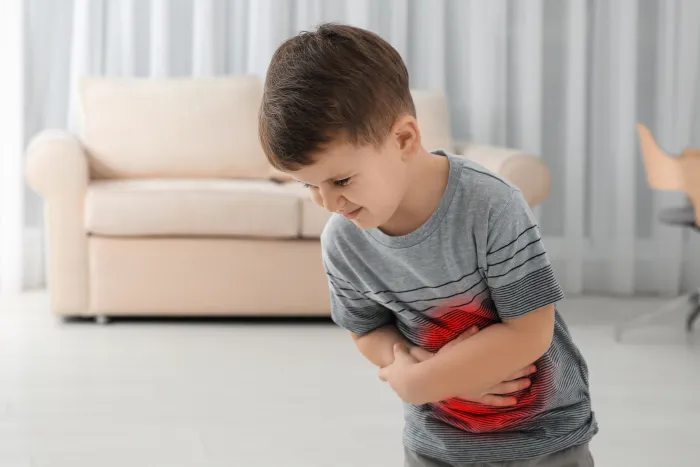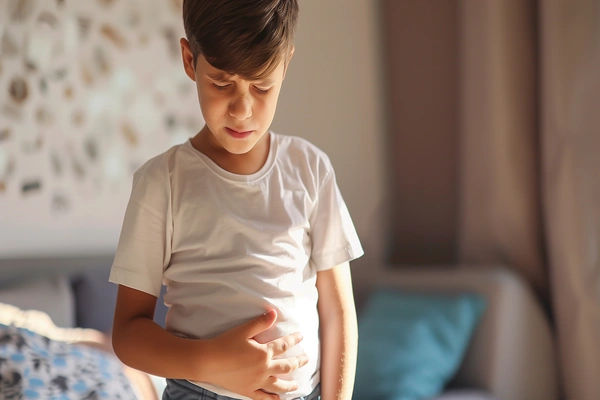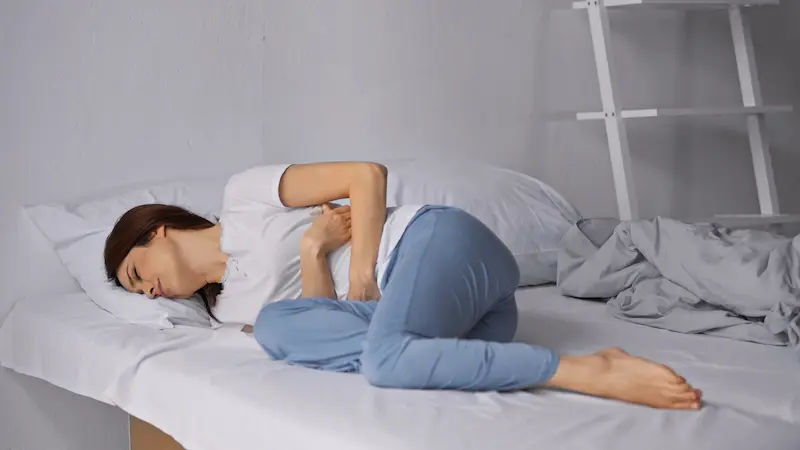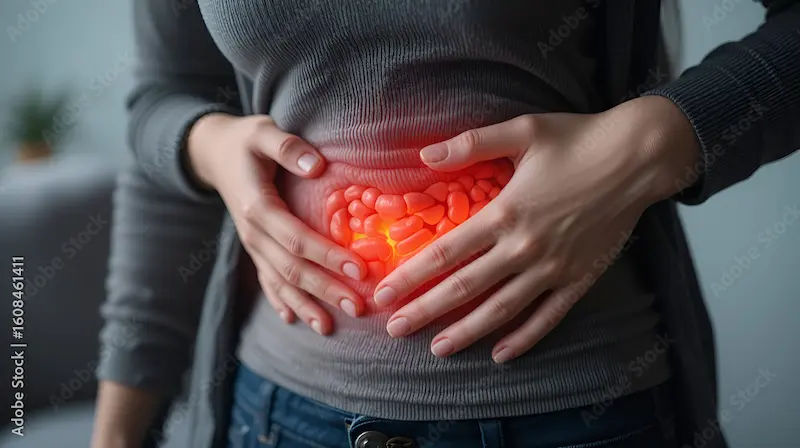Understanding Your Child's Chronic Tummy Pain: A Parent's Guide
Learn about chronic abdominal pain in children, common causes, the gut-brain connection, management strategies, and when to seek medical help.

Written by Dr. Siri Nallapu
Reviewed by Dr. Dhankecha Mayank Dineshbhai MBBS
Last updated on 13th Jan, 2026

Introduction
Watching your child suffer from recurrent stomachaches is heartbreaking and frustrating. You’ve tried everything—diet changes, over-the-counter remedies, endless reassurance—but the pain keeps coming back. You're not alone. Chronic abdominal pain in children is a common reason for paediatrician visits, affecting up to 15% of school-aged kids. This guide is designed to walk you through the potential causes, from everyday issues like constipation to more complex functional disorders. We’ll demystify the diagnosis process, explore effective management strategies that go beyond medicine, and help you identify when it's time to seek further help. Our goal is to empower you with knowledge and provide a roadmap to help your child find lasting relief.
What is Chronic Abdominal Pain in Children?
Chronic abdominal pain (CAP) is defined as long-lasting or frequently recurring pain in a child aged 4-18 years, lasting for more than two months. It's important to understand that "chronic" refers to the duration, not necessarily the severity. The pain can be constant or come and go, and its intensity can vary from a dull ache to sharp, cramping sensations.
Chronic vs. Acute Pain: Knowing the Difference
Understanding this distinction is the first step. Acute pain is sudden, severe, and often has a clear cause, like a stomach virus, food poisoning, or appendicitis. It typically resolves once the underlying issue is treated. Chronic pain, on the other hand, persists. It’s a pattern of discomfort that impacts daily life—missing school, avoiding activities, and causing significant worry for the whole family. If your child's stomach pain episodes have been ongoing for several weeks, it's considered chronic and warrants a structured approach to management, often starting with a consultation with a paediatrician. If symptoms persist beyond two weeks, consult a doctor online with Apollo24|7 for further evaluation.
Common Causes of Recurring Stomachaches in Kids
The causes of chronic abdominal pain in children are broadly categorised into two groups: functional and organic.
Functional Causes: When the Gut is Overly Sensitive
Functional gastrointestinal disorders are the most common cause of CAP in children. There's no visible disease or structural problem (like an ulcer or inflammation), but the gut-brain axis isn't functioning smoothly. The digestive system is overly sensitive to stimuli like gas, stool, or stress.
Functional Abdominal Pain (FAP)
This is a diagnosis of exclusion when no other cause is found. The pain is real and often centred around the belly button. It's believed to be due to "visceral hypersensitivity," where the nerves in the gut are exceptionally sensitive to normal digestive processes.
Irritable Bowel Syndrome (IBS) in Children
IBS is a specific type of functional disorder characterised by pain associated with a change in bowel habits—either diarrhoea, constipation, or both. Bloating and gas are also very common symptoms.
Functional Dyspepsia
This pain is focused in the upper abdomen. Children may feel overly full quickly after starting a meal (early satiety) or experience a burning sensation or discomfort in their upper belly, unrelated to bowel movements.
Abdominal Migraines
These are episodes of intense, acute abdominal pain that can last for hours or even days. They are often accompanied by other migraine-like symptoms such as pallor, nausea, vomiting, loss of appetite, and headache. There is often a family history of migraines.
Organic Causes: Underlying Medical Conditions
These are less common but important to rule out. They involve an identifiable medical, inflammatory, or anatomical cause.
Lactose Intolerance and Other Food Intolerances
Lactose intolerance (inability to digest the sugar in milk) can cause bloating, gas, diarrhoea, and cramping. Other intolerances, like to fructose or sorbitol, can cause similar recurring stomach pain in kids.
Constipation: A Common Culprit
This is an incredibly frequent and often overlooked cause. Hard, infrequent stools can cause significant cramping and dull pain. Once the constipation is treated, the pain often completely resolves.
Coeliac Disease
An autoimmune disorder where eating gluten (a protein in wheat, barley, and rye) damages the small intestine, leading to pain, diarrhoea, weight loss, and fatigue.
Gastro-oesophageal Reflux Disease (GERD)
When stomach acid frequently flows back into the oesophagus, it can cause a burning pain in the chest or upper abdomen (heartburn).
Less Common Organic Causes
These include inflammatory bowel disease (IBD) like Crohn's disease or ulcerative colitis, Helicobacter pylori infection (which can cause ulcers), and, very rarely, anatomical issues. This is why a proper medical evaluation is crucial.Consult a Specialist for the best advice
The Gut-Brain Connection; How Stress and Anxiety Play a Role?
The gut is often called the "second brain." A complex network of nerves connects the brain and the digestive system. This is why stress, anxiety, and worry can manifest directly as physical stomach pain in children. A big test, social troubles at school, or tension at home can trigger or worsen abdominal pain. This isn't "all in their head"—the pain is very real. The brain is sending stress signals that alter gut motility and increase sensitivity. Addressing underlying anxiety is often a key component of successful functional abdominal pain treatment.
When to Worry?
While most chronic pain is functional, certain symptoms require immediate medical attention. Contact your doctor right away if your child's pain is accompanied by:
• Pain that wakes them from sleep
• Fever
• Persistent vomiting or vomiting blood
• Blood in the stool or black, tarry stools
• Severe diarrhoea
• Unexplained weight loss or poor growth
• Pain located away from the belly button (especially in the lower right or upper right abdomen)
• Skin rashes or joint pain
These "red flags" could indicate a more serious organic condition that needs prompt diagnosis.
Diagnosing the Cause: What to Expect at the Doctor's
The diagnostic process is detective work, primarily led by you and your paediatrician.
The Importance of a Detailed Medical History and Diary
Your doctor will ask detailed questions about the pain's location, timing, character, and what makes it better or worse. Keeping a "pain diary" for two weeks before your appointment is incredibly valuable. Note the timing of pain, food intake, bowel movements, sleep patterns, and stressful events.
Physical Examination
The doctor will perform a thorough exam, including gently pressing on the abdomen to check for tenderness, listening to bowel sounds, and checking for signs of weight loss or other issues.
Diagnostic Tests: Are They Always Necessary?
For most children without red flags, extensive testing isn't needed initially. If warranted, tests might include:
• Stool tests to check for infection or blood
• Blood tests to screen for coeliac disease, inflammation, or anaemia
• Breath tests to diagnose lactose intolerance or SIBO
• Ultrasound to look at abdominal organs
Apollo24|7 offers convenient home collection for tests like CBC or coeliac panels, making the process easier for your child.
Treatment and Management Strategies for Chronic Abdominal Pain
Treatment is multifaceted, focusing on improving quality of life rather than finding a mythical "cure."
Dietary Modifications and Elimination Diets
• Fibre: Increasing fibre and water intake can help if constipation is a factor.
• Lactose-Free Trial: A two-week trial of a lactose-free diet can test for intolerance.
• Low FODMAP Diet: This is a more structured elimination diet often used for IBS, but it should be done under the guidance of a dietitian or doctor.
The Power of Reassurance and Cognitive Behavioural Therapy (CBT)
Simply understanding that there is no serious disease can be powerfully therapeutic for both the child and parents. CBT is highly effective for functional pain, teaching kids coping mechanisms, relaxation techniques, and ways to reframe their thoughts about the pain.
Medications and Supplements
These are used sparingly and targeted to the cause:
• Probiotics: Some strains may help regulate gut flora
• Peppermint Oil: Enteric-coated capsules can relax intestinal muscles and ease IBS symptoms
• Paracetamol: For pain flares (avoid frequent ibuprofen as it can irritate the stomach)
• Other medications: like acid reducers for GERD or laxatives for constipation may be prescribed
Creating a Supportive Home Environment
Normalise your child's life as much as possible. Avoid making the pain the centre of attention. Encourage school attendance and activities, using pain management techniques to get through them. Praise them for brave behaviour.
Conclusion: Empowering Your Child and Finding Relief
Navigating your child's chronic abdominal pain is a journey that requires patience, empathy, and a proactive partnership with healthcare providers. Remember, the goal is often management, not instant eradication of pain. By understanding the potential causes, diligently tracking symptoms, and implementing a holistic plan that addresses both physical and emotional triggers, you can empower your child to regain control. Your reassurance that they are strong and capable of managing discomfort is invaluable. If your condition does not improve after trying these methods, book a physical visit to a doctor with Apollo24|7 to explore further options with a paediatric gastroenterologist. With time and the right approach, most children find significant relief and get back to enjoying their childhood.Consult a Specialist for the best advice
Consult a Specialist for the best advice

Dr S Lakshmi Narasimha Reddy
General Practitioner
9 Years • MBBS
Kondapur
Singam's Kids Clinic, Kondapur

Dr. Ashita Kuruvilla
General Physician/ Internal Medicine Specialist
7 Years • MBBS
East Midnapore
VIVEKANANDA SEBA SADAN, East Midnapore
Dr. Gafur Mansuri
General Practitioner
42 Years • MBBS , AFIH
Ahmedabad
Aliya clinic, Ahmedabad

Dr. Ritesh Motghare
General Practitioner
18 Years • MBBS PGCDM
Nagpur
HEALTH CENTRE VNIT NAGPUR, Nagpur
Dr. Robin Jeya Bensam
General Practitioner
25 Years • MBBS, AFIH, FCIP, FRSH
Chennai
Robin Hospitals, Chennai
Consult a Specialist for the best advice

Dr S Lakshmi Narasimha Reddy
General Practitioner
9 Years • MBBS
Kondapur
Singam's Kids Clinic, Kondapur

Dr. Ashita Kuruvilla
General Physician/ Internal Medicine Specialist
7 Years • MBBS
East Midnapore
VIVEKANANDA SEBA SADAN, East Midnapore
Dr. Gafur Mansuri
General Practitioner
42 Years • MBBS , AFIH
Ahmedabad
Aliya clinic, Ahmedabad

Dr. Ritesh Motghare
General Practitioner
18 Years • MBBS PGCDM
Nagpur
HEALTH CENTRE VNIT NAGPUR, Nagpur
Dr. Robin Jeya Bensam
General Practitioner
25 Years • MBBS, AFIH, FCIP, FRSH
Chennai
Robin Hospitals, Chennai
More articles from Abdominal Pain
Frequently Asked Questions
1. Can my child outgrow functional abdominal pain?
Yes, many children do outgrow functional abdominal pain disorders. Symptoms often lessen or disappear entirely by late adolescence. However, teaching them coping strategies now provides them with lifelong skills for managing stress and physical discomfort.
2. Should I keep my child home from school when they have a stomachache?
This is a delicate balance. If there are no red flag symptoms, encourage school attendance. Allowing them to stay home can inadvertently reinforce the pain behaviour. Work with the school nurse and teacher to create a plan where your child can lie down briefly if needed but is expected to participate in class.
3. What are the best foods for a child with chronic stomach pain?
There's no one-size-fits-all answer, but generally, a balanced diet high in fibre from fruits, vegetables, and whole grains (if tolerated) is good. For kids with IBS-like symptoms, a low-FODMAP diet under guidance can help identify trigger foods like certain dairy, wheat, beans, and sweeteners.
4. Is it all psychological if no medical cause is found?
No. The pain is very real. While stress and emotions can significantly influence and amplify the pain, the origin is a dysregulation in the gut-brain axis—a physical problem with how the gut and nervous system communicate. It's a biopsychosocial disorder, meaning biological, psychological, and social factors all play a role.
5. When should I seek a specialist like a paediatric gastroenterologist?
Consider a referral if the pain is severe and significantly impacting daily life, if initial treatments with your paediatrician aren't helping, or if red flag symptoms emerge. A gastroenterologist can perform more specialised testing and provide advanced management strategies.




